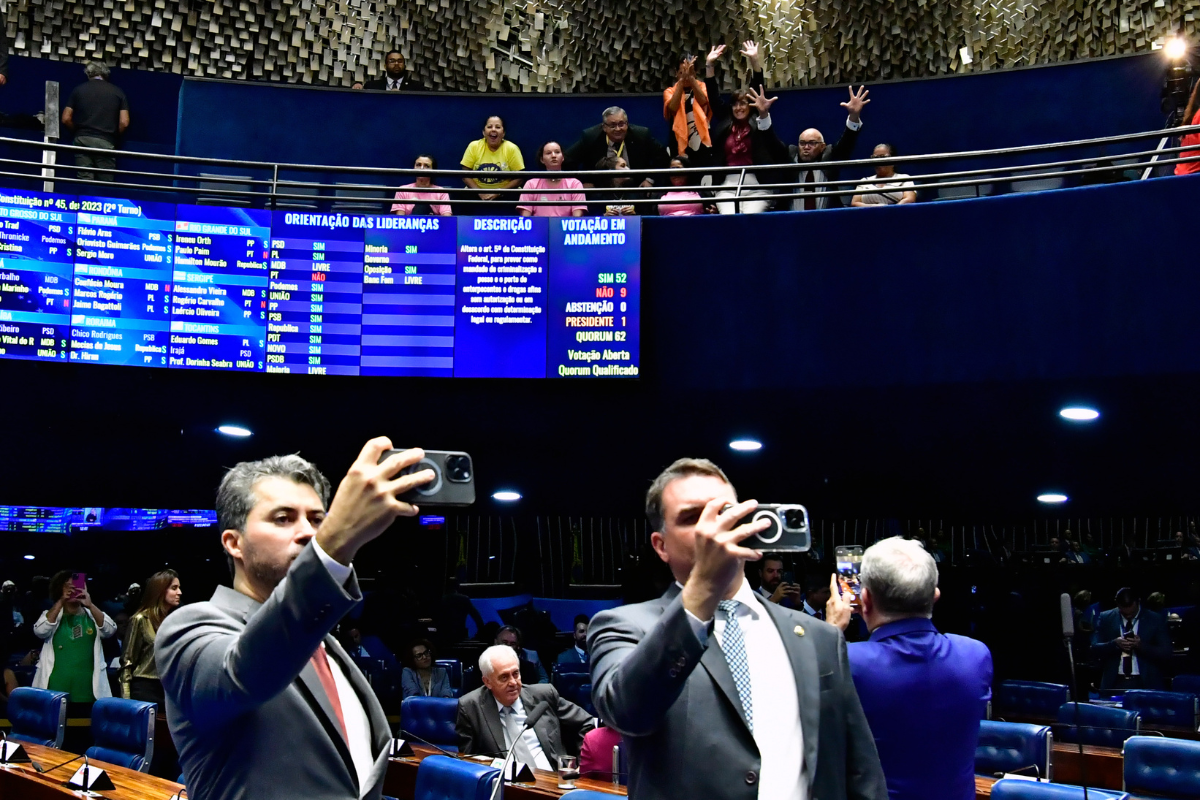The Senate floor on Tuesday approved a bill to enshrine in Brazil’s Constitution an ambiguous distinction between users of drugs and dealers.
The current key legislation on the issue, enacted in 2006, defines that in order to differentiate users from drug dealers, the judge must consider factors such as the quantity of the drug seized, the location of the seizure, and the “social and personal circumstances” of the defendant. Legal scholars overwhelmingly agree that the current subjective criteria allows for decisions often applied with racial and class bias.
Senate President Rodrigo Pacheco authored a bill to criminalize drug possession in any quantity, removing the subjective criteria. However, senators voted on a different draft, with an amendment proposed by opposition whip Rogério Marinho that effectively waters down Mr. Pacheco’s original intention and keeps the distinction between user and dealers ambiguous.
The bill with the text proposed by Mr. Marinho was previously approved by the Senate Constitution and Justice Committee in March and will be sent to the House.
The intention of the senators is not to change the current policy on drugs, but actually to pre-empt a potential upcoming decision by the Supreme Court that could decriminalize marijuana possession.
The justices already formed a majority in favor of defining an objective quantity to distinguish users from dealers, although they disagree about the exact amount. Furthermore, five justices have voted in favor of decriminalizing marijuana possession for personal use. The trial was suspended in early March, with three justices left to vote.
Tuesday’s vote is yet another chapter in an ongoing struggle between mostly right-wing lawmakers and the Supreme Court over several issues, such as parliamentary immunity, rules for firearms, same-sex marriage, regulation of social media, and the arrest of a suspect in a high-profile political murder.


 Search
Search






































